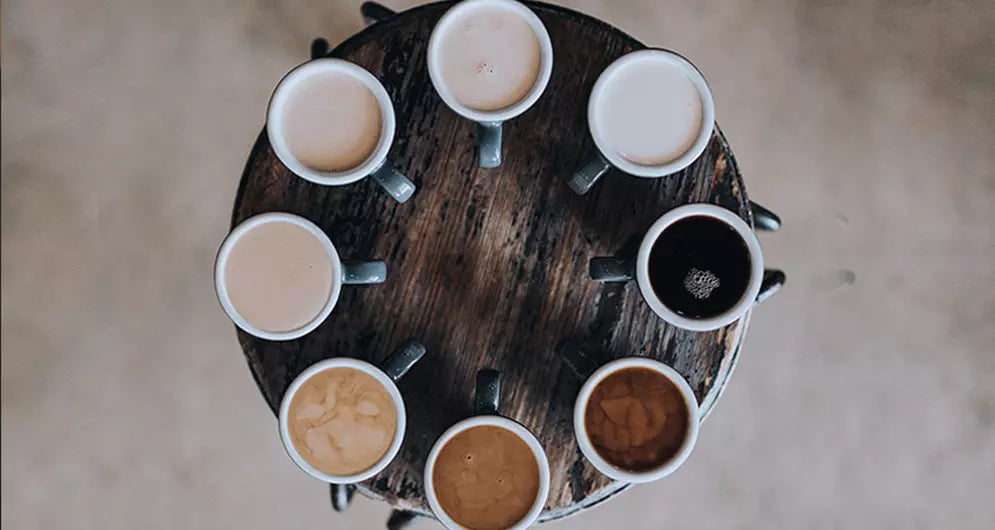Caffeine is a naturally occurring chemical found in a variety of plants. It’s commonly found in sources such as coffee beans, tea leaves, guarana, yerba mate, kola nuts and cocoa beans. About 96% of caffeinated beverages consumed are from coffee, soft drinks, and tea. Let’s take a look at coffee and tea and the level of caffeine from decaf to caffeinated.
NATURALLY CAFFEINATED BEVERAGES
The top two most-widely consumed sources of caffeine include coffee beans and tea leaves. The best part is that these two sources can be created and enjoyed in hundreds of unique ways. Caffeinated coffee beans and tea leaves can be enjoyed by a simple cup of black coffee, iced green tea or to something extravagant like a mocha frappuccino or London fog. However, when it comes to the level of caffeine - not all caffeinated beverages are created equal. The level of caffeine in coffee is determined by variables such as type of coffee bean, type of roast, processing, preparation and brewing methods. The amount of caffeine in tea varies by factors such as growing methods, growing conditions, quality of leaves, maturity of leaves, packaging, degree of processing, fermentation, oxidation, preparation, length of time stepped, and even water temperature. Do you know how much caffeine you consume per day? Take a look at some of the average caffeine content of some favored caffeinated beverages.
- Coffee (8oz. or 236mL) = 95-200 mg caffeine
- Black Tea (8oz. or 236mL) = 14-70 mg caffeine
- Green Tea (8oz. or 236mL)= 24-45 mg caffeine
DECAFFEINATED BEVERAGES
Caffeine can be removed from the green coffee beans through a decaffeination process. However, the decaffeination process can only extract about 97% of the total caffeine. In turn, a cup of decaf coffee is not necessarily caffeine-free and may actually contain small amounts of caffeine of upwards of 8mg per serving. You can also find decaffeinated black, green and oolong teas. However, just like decaf coffee - they too will also contain trace amounts of caffeine. If interested in a naturally caffeine-free tea, then herbal or rooibos teas are the way to go. Herbal teas are different from black, green, oolong and white teas as they are made from a variety of plants roots, leaves, flowers and other components. Since herbal teas are made from plant materials they generally contain little-to-zero caffeine.
- Decaf Coffee (8oz. or 236mL) = 2-10 mg caffeine
- Decaf Green Tea (8oz. or 236mL) = 1-2 mg caffeine
- Herbal Tea (8oz. or 236mL) = caffeine-free
HOW DO YOU TAKE YOUR CAFFEINE?
Everyone enjoys their caffeine in their own way. Many will mix it up. Always be mindful of your caffeine tolerance and remember more is not always better. It’s important to always read the label so you understand how much caffeine your daily intake.





